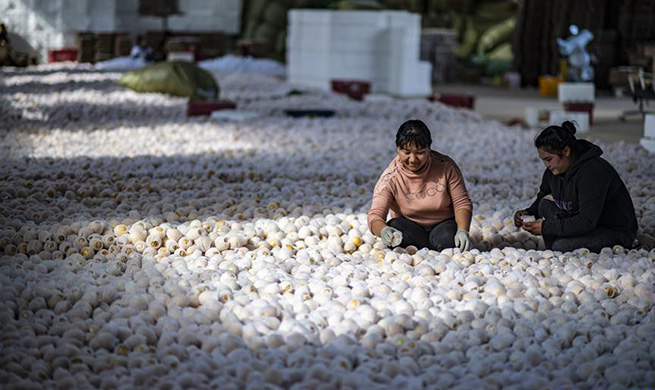DAR ES SALAAM, Dec. 3 (Xinhua) -- Tanzania's agriculture sector offers fresh opportunities for accelerated poverty reduction, a new World Bank report said on Tuesday.
The World Bank's 13th Tanzania Economic Update report released in the commercial capital Dar es Salaam said recent signs of transformation in Tanzania's agricultural sector offered encouraging opportunities for acceleration of growth, job creation and poverty reduction.
But the report urged the government of Tanzania to urgently take steps aimed at improving the sector's policy and regulatory environment and investments.
Bella Bird, World Bank Country Director for Tanzania, said that "the current trends in agriculture offer a tremendous opportunity to catalyze private investment, both local and foreign, and raise the incomes of the poor."
"Since agriculture already accounts for a quarter of total GDP and two-thirds of jobs, enhanced agricultural growth must be part of the strategy to create more and better jobs and alleviate poverty." She said.
The report underscores the importance of having supportive public policies and spending which crowds in more private investments needed to catalyze a nascent agriculture transformation.
Signs of transformation within the study period (2008-2014) include a growing number of medium-scale farmers which has opened up opportunities for smallholder farmers through positive spillovers, say the authors.
According to the authors, these farms have created jobs for farmers through their demand for extra agricultural inputs and financial, traction rental, and, especially, transport services.
Holger Kray, World Bank Agriculture Practice Manager and co-author of the report, said: "What we are seeing for example is that medium-sized farms grew from 23 percent of all farm land holdings in the country in 2008 to 35 percent in 2014, and these are in the 5-20 hectare range, compared to the typical smallholding of 1-2 hectare, whose numbers are decreasing."
"These farmers employ, invest in technology and knowledge, and they attract commercial services that can provide a basis for tax revenue. And the effect of this is that small-scale farms on average improved their farming outcomes," Kray added.
According to the report, the presence of medium-scale farms in a district generally builds and deepens markets for agricultural inputs and outputs by enhancing local demand, which attracts suppliers.
As a result, small-scale farms were more likely to use improved seed and fertilizer, cultivate a larger proportion of their landholdings, and access agricultural extension services and credit in areas where there are more medium- and large-scale farms.
The agriculture sector provides livelihoods directly to around 55 percent of the population in Tanzania, and three quarters of the poor, and indirectly to a further 15 percent within related value chain functions such as traders, transporters and processors.

















